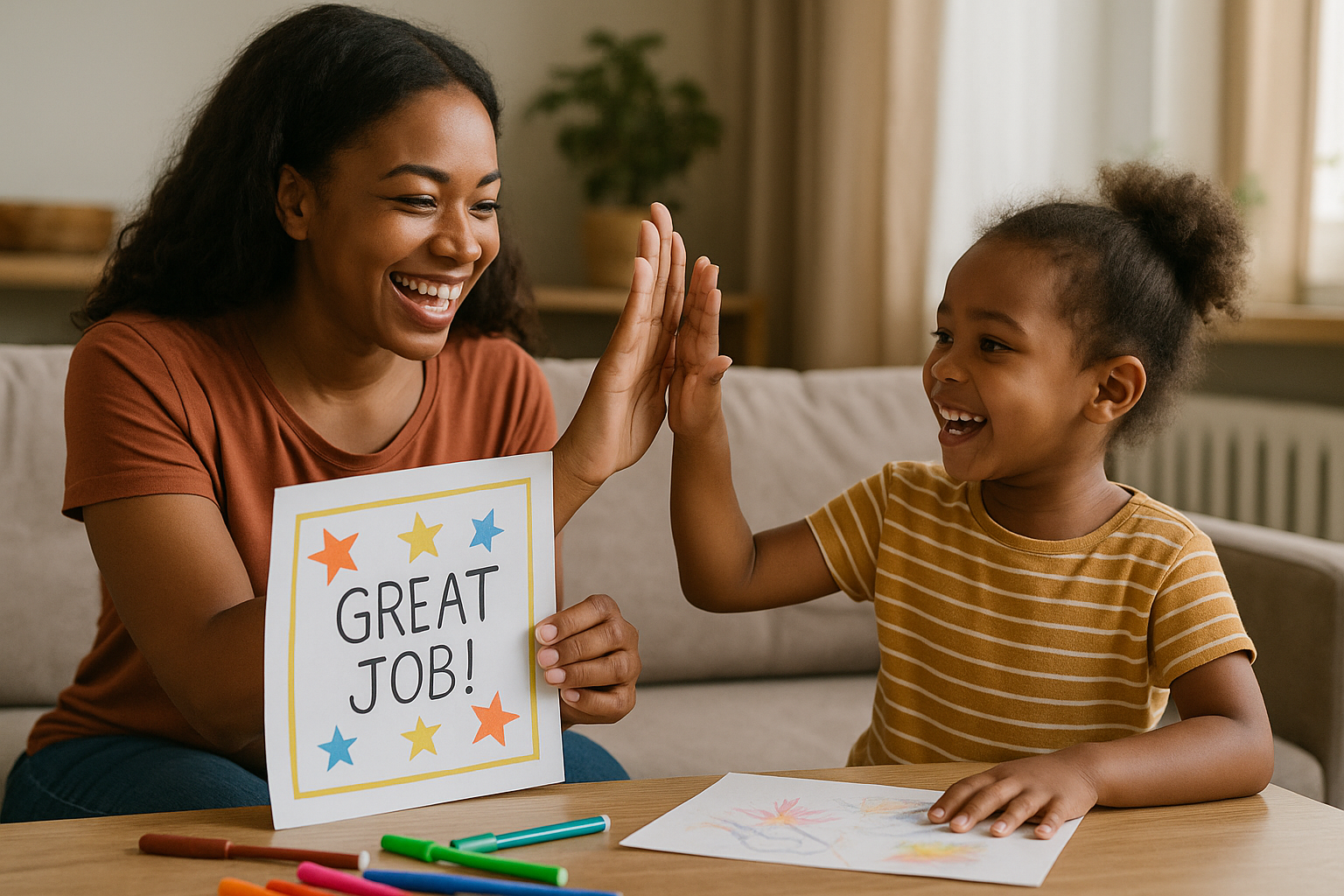When teaching young children at home, we often focus on major academic goals — learning to read, counting to 100, writing full sentences. But between those milestones are hundreds of small victories that deserve just as much celebration. Recognizing these “tiny wins” not only boosts your child’s confidence but also strengthens your bond, builds motivation, and supports a lifelong love of learning.
This article explores why celebrating small achievements is so powerful — and gives you practical, fun ways to make these moments special in your home education routine.
Why Small Milestones Matter
A learning milestone doesn’t have to be big to be important. For a preschooler, recognizing their name, using scissors correctly, or sharing a toy might be huge steps. These moments build:
- Confidence – “I can do it!”
- Motivation – “I want to try again!”
- Emotional growth – “I’m proud of myself.”
- Memory connections – The brain connects success with enjoyment
Celebrating small wins helps children notice their progress, making learning a joyful and rewarding experience.
What Are Small Milestones in Early Childhood Learning?
Here are examples of simple milestones that are worth celebrating:
Academic:
- Writing their name for the first time
- Recognizing new letters or numbers
- Counting aloud to 20 without help
- Drawing a recognizable shape
Social-Emotional:
- Taking turns during a game
- Following a routine without reminders
- Expressing a feeling with words
Physical:
- Cutting along a line
- Holding a pencil properly
- Completing a craft independently
Language:
- Retelling a story in their own words
- Asking a question during reading
- Using new vocabulary from a lesson
How to Recognize and Celebrate Small Wins
Celebration doesn’t need to be loud or expensive — it needs to be meaningful.
1. Praise with Purpose
Skip generic praise like “Good job!” and try:
- “You worked really hard to finish that puzzle.”
- “You tried a new word today. That’s brave!”
- “You remembered the days of the week. That’s awesome!”
This helps your child connect effort with progress.
2. Create a Celebration Jar
Use a jar and fill it with tokens, marbles, or paper stars every time your child hits a small goal. When the jar is full, they earn a fun activity (baking, extra story time, park visit).
3. Make a “Wall of Wins”
Hang up drawings, worksheets, photos, or certificates on a special wall. Let your child pick what goes up and when to change it.
4. Daily “High Five” Time
At the end of each day, ask your child:
- “What’s something you’re proud of today?”
- “What did you learn that was fun?”
Give them a high-five to reinforce their reflection.
5. Mini Certificates
Create small “awards” with fun titles:
- “Shape Finder Award”
- “Kind Helper Certificate”
- “Puzzle Master Badge”
Use stickers or colorful paper to make it feel official.
6. Story Sharing Time
During dinner or bedtime, let your child share what they accomplished that day. Celebrate their storytelling and confidence.
Making Celebration a Daily Habit
Incorporate celebrations into your daily rhythm:
- Morning: “What are you excited to try today?”
- Midday: “What are you doing well?”
- Evening: “What’s something you want to remember about today?”
Use consistent language so your child begins to reflect and self-celebrate.
Involving the Whole Family
Celebration is even more powerful when it’s shared.
7. Call or Video Chat with a Loved One
When your child meets a goal, let them tell a grandparent, cousin, or friend. This builds pride and conversation skills.
8. Family Cheerleader Circle
Once a week, gather as a family and each person says something they’re proud of — including parents. Model growth and self-compassion.
Linking Celebration to Responsibility
Celebrating doesn’t mean rewarding everything with toys or candy. You can teach children that effort and joy are their own rewards, but that acknowledgment matters.
Let them celebrate others too:
- “You helped your sister with her puzzle. I’m proud of how kind you were.”
- “Let’s make a badge for Dad for fixing the chair!”
This reinforces empathy and the habit of recognizing others.
Digital Memory-Making
Capture progress with:
- A private photo album or app for learning snapshots
- Short video clips of reading or storytelling
- Voice memos of your child talking about their work
Review these together every month to reflect and celebrate growth.
Keep It Positive — Not Perfect
Celebrating doesn’t mean pretending everything is easy. It means highlighting the journey. Avoid:
- Comparing your child to others
- Pressuring them to win more “stars”
- Making mistakes feel like failure
Instead:
“You didn’t finish today, but you tried really hard — that’s worth celebrating.”
Final Thoughts: Little Wins Lead to Big Learning
In a world full of tests and standards, it’s easy to overlook the wonder of small learning moments. But they are the foundation of everything to come. By pausing to celebrate each one — no matter how tiny — you’re teaching your child that growth is always worth recognizing.
So grab the glue, make that “You Did It!” sticker, and cheer on your little learner. Because today, they counted to ten without help — and that’s amazing.
